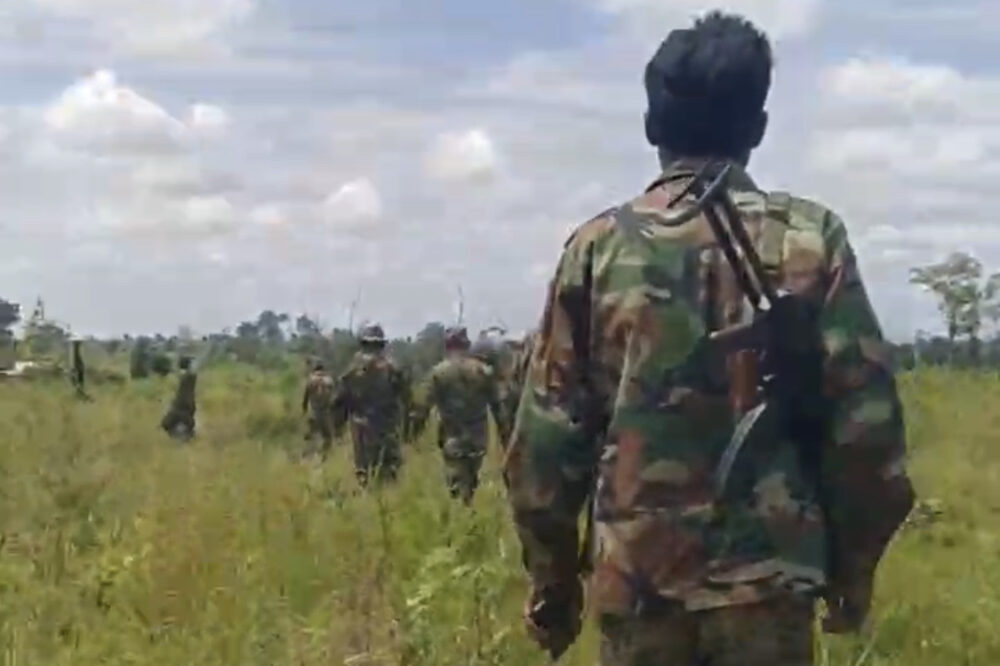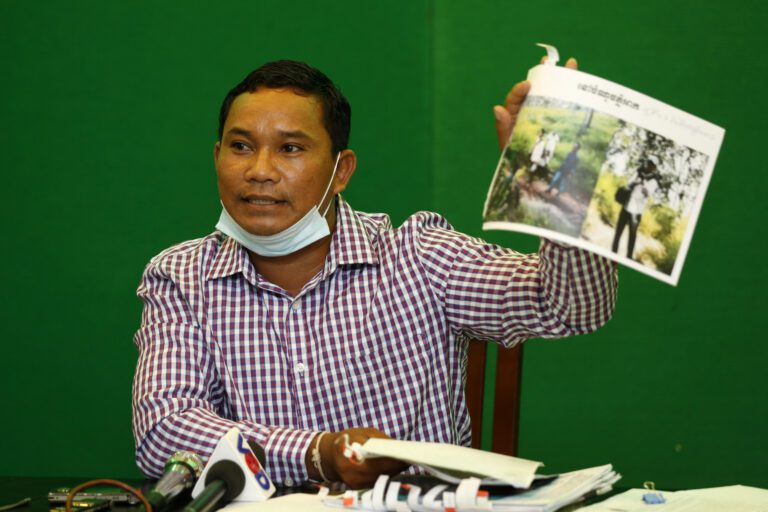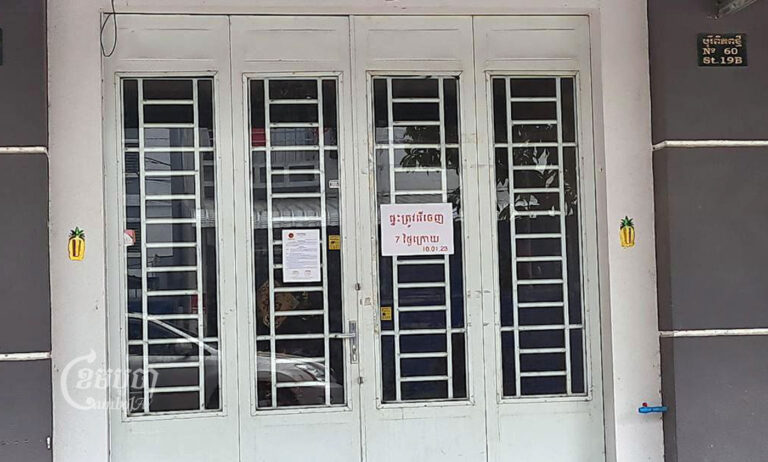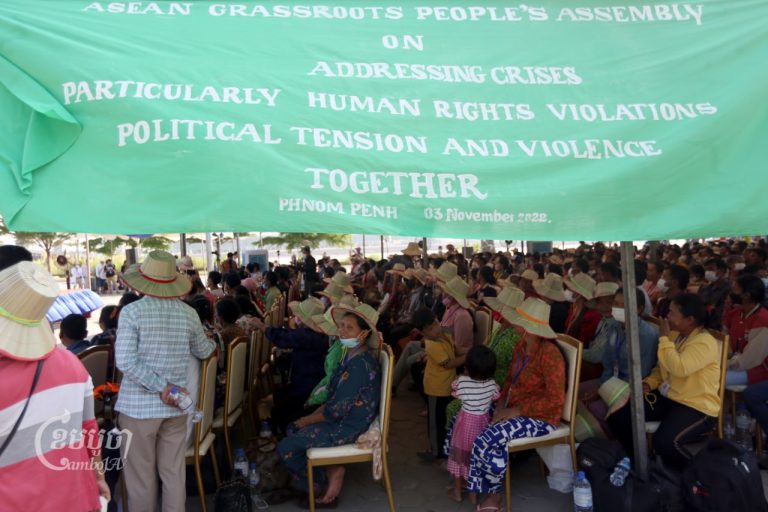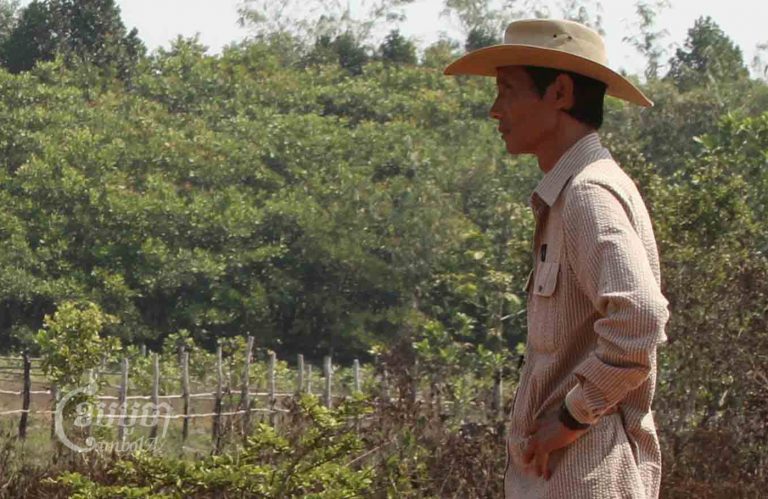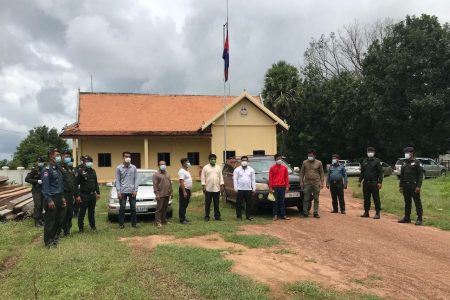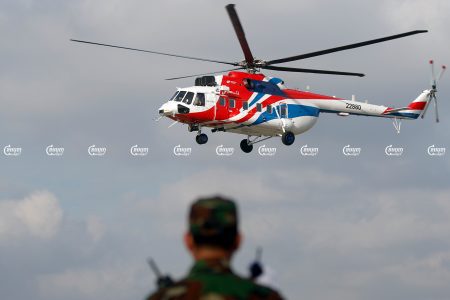Royal Cambodian Armed Forces (RCAF) soldiers and environmental officials uprooted and confiscated mango trees planted by Chup Saom community members on long-disputed land in Siem Reap province.
“They came to prevent me from planting trees or cultivating crops on my land. What will I have to eat?” said San Sre, 48, who told CamboJA she has lived in the area since 2000.
Sre planted about 500 mango trees on five hectares of land, which she says her family has farmed on for generations, just a few days before the Monday incident. That morning around 10 environmental officials took photos of her farmland, and later about 100 soldiers armed with AK-47s came onto her land and pulled up all the trees. The officers told her she was illegally using a protected area.
Video clips show soldiers carrying trees and villagers filming with their phones.
Locals say they have used this area for decades to collect forest products and cultivate crops, but officials say residents have illegally cleared forest and expanded farmland in a community protected area. The villagers have been in a decade-long dispute with RCAF’s Region 4 military officers covering the area.
A government report about the Monday incident obtained by CamboJA stated that authorities have banned encroachment on Trapeang Trey Diep, the northern point of a community protected area called Chup Saom in Senchey village, Kantuot commune, Svay Loeu district in Siem Reap province.
San Sre and her husband Breng Hing brought about 12 people to plant mango seedlings in order to seize the land, according to the report. After soldiers arrived, they wanted to stop the residents from protesting but “no one listened.” The villagers continued to record video and stream live on Facebook, which “disrupted the authorities’ work,” the document states. Hing has been summoned to appear in court.
Suong Sopiseth, Senchey deputy village chief and head of the Chup Saom community, said that the soldiers present were from RCAF’s Region 4, which oversees an area including Siem Reap province.
But a spokesperson for the military force, who declined to give his name, denied that its forces were involved in this incident. RCAF’s Region 4 Commander Pov Heng could not be reached for comment.
“I am still shocked after they came with guns and warned my brother not to shoot video, hitting his face [with their fists] and bruising him,” Sre said. “People like me have nothing apart from a phone to capture the moment for evidence.”
Sopiseth admitted that authorities confiscated the man’s cell phone but denied that authorities were violent.
“There was no beating of anyone. We just banned him from [streaming on] Facebook Live and took his phone and the mango trees to the environmental office and waited for them to settle down,” he said.
He claimed that San Sre’s family no longer lives in the area and came back to clear the forest and take ownership of the land, even though authorities have warned her not to grow crops there.
The issue the government has is not with simply planting trees, but with villagers clearing forest and expanding farmland illegally in a protected area, he said.
“There is no problem if they [the family] use the community’s land just to gain benefits, even one hectare or two hectares,” he said. “But they did not think like this. They obviously cleared the land without permission on the community’s land, which is against the policy.”
Sre told CamboJA she inherited her farmland from her parents in 2000, still lives in the area and denies that her family was clearing land.
In 2002, Prime Minister Hun Sen’s Youth Land Survey Program surveyed the village and offered her family a land recognition letter, or soft title, she said. But, despite slogging through the bureaucratic process, she said she has not been granted a hard land title from the government.
Many Cambodians living in the provinces do not have land titles granted by the national government and the present-day titling processes have failed to reach all Cambodians.
Authorities say the land in question is on the Chup Saom community protected area, first classified as part of a protected area in 2012.
Under the Natural Protected Area Law, officials must research existing land claims in order to establish a protected area. In July 2020, former Prime Minister Hun Sen ordered that land titles be granted to people who have lived on land inside protected areas for more than ten years.
In November 2022, a sub-decree allowed the government to classify the Chup Saom area as a community zone, a type of protected area where communities are permitted to live and farm. At the time, conservationists feared the sub-decree could be abused, allowing government officials to legalize existing land grabs and launder land giveaways.
“Simply put, there have been many unjust events in this village, ranging from land rights violation, land grabs and conflicts with the authorities, so people are in fear,” said Yang Vith, a Senchey village resident, who said the Monday incident adds to the years-long conflict over the land.
According to Vith, the Chup Saom community was established by local authorities and other officials and the area’s managing committee is made up of officials, but there was no participation from ordinary people when the committee was selected.
Vith said the committee demanded that people request permission to legally use the land within the community protected area. CamboJA reviewed the application form, provided by the community head Sopiseth. However, Vith said most people did not comply with the rule since they had lived on this land for years before the community protected area was established.
“People do not want to comply with their rule because they have already lived on this land for years. If they do so, it means that people need to ask for permission on their own land,” he said.
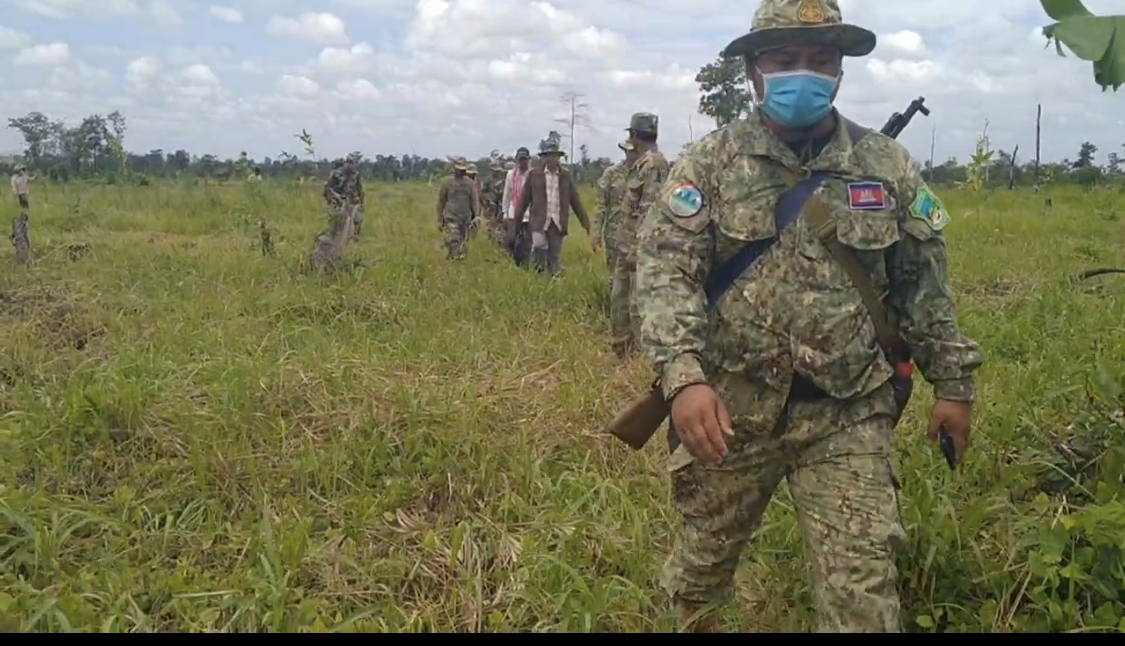
This is not the first time that environment officials have removed property in Senchey village. In June 2022, VOD reported that officials cleared about 60 fence posts from the ground, according to villagers and a report from the Svay Loeu district governor. Officials and soldiers allegedly prevented the villagers from using the land and accused them of encroaching on the Chup Saom community protected area.
“This land is managed by environmental officials. But I hope they can forgive and facilitate with people,” said Kantuot Commune Chief Chhong Chhea, adding that he hopes there will be no further issues after the Monday incident and the villagers will be able to resume farming soon.
Sun Kong, director of Siem Reap’s provincial Environment Department, did not answer CamboJA’s questions, saying he was “in proceedings.”
Defense Ministry spokesperson Chum Socheat said he had no knowledge of the incident and that no report had been sent to him.
The Senchey village chief could not be reached for comment.
“My land does not belong to them [the state]. They [the officials and soldiers] told me that my land is included in the community protected area, but I have used this land since 2000. How can I ask permission on my own land?” she said, citing the 2001 Land Law, which stipulates that people who possessed land five years prior to the law can request a title of ownership.
She said her family never had any threats before 2012 when the protected area was first established. “I will file a complaint to the authorities since I have enough evidence to prove my ownership.”


